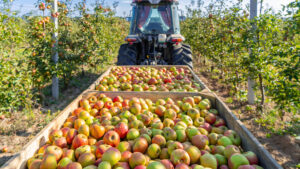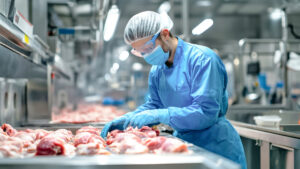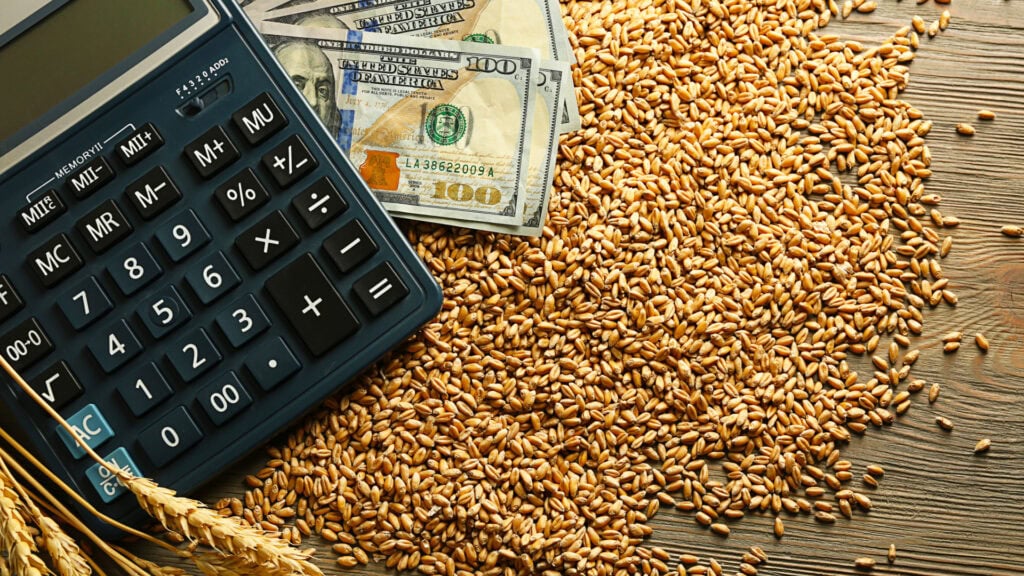The Economic Impact of Agriculture on Washington State: The Key to Economic Stability
 Washington State is not only renowned for its stunning natural landscapes and tech industries but also for its vibrant and diverse agricultural sector. Agriculture is not just an important part of the economy—it is the very backbone that holds the state together. Without the hard work of farmers and the immense financial contributions from the agricultural sector, Washington’s economy would face a precarious collapse. Agriculture plays a crucial role in sustaining the economy, creating jobs, contributing to environmental health, and shaping the state’s rural communities. With a rich tapestry of crops, livestock, and agri-businesses, agriculture in Washington has a profound economic impact that extends far beyond the borders of its farms and ranches.
Washington State is not only renowned for its stunning natural landscapes and tech industries but also for its vibrant and diverse agricultural sector. Agriculture is not just an important part of the economy—it is the very backbone that holds the state together. Without the hard work of farmers and the immense financial contributions from the agricultural sector, Washington’s economy would face a precarious collapse. Agriculture plays a crucial role in sustaining the economy, creating jobs, contributing to environmental health, and shaping the state’s rural communities. With a rich tapestry of crops, livestock, and agri-businesses, agriculture in Washington has a profound economic impact that extends far beyond the borders of its farms and ranches.
Employment and Income Generation
Agriculture is a major employer in Washington State. According to data from the Washington State Department of Agriculture, approximately 164,000 jobs are directly tied to farming, food processing, and related sectors (“Washington State Department of Agriculture,” 2023). These positions range from labor-intensive fieldwork and harvesting to specialized roles in research, food safety, and technology. When indirect and related jobs are also considered, the total employment attributable to agriculture climbs even higher. Simply put, without these jobs, the economic foundation of many communities would crumble.
The annual wages and income generated by these jobs are significant, with over $12 billion flowing into the pockets of agricultural employees each year. This steady income stream is critical to the survival of rural economies, providing the necessary financial base for local businesses, schools, and public services. Notably, the agricultural industry employs a wide range of skills and offers opportunities for both entry-level workers and highly skilled professionals, contributing to social mobility and economic resilience across the state. If agriculture were to falter, so too would the livelihoods of tens of thousands of Washingtonians who rely on these opportunities to support their families.
Carbon Sequestration: Farmers as Environmental Stewards
Beyond its economic contributions, agriculture in Washington State plays an indispensable role in environmental sustainability—particularly in carbon sequestration. The state’s farmers and ranchers are actively engaged in practices that help to sequester carbon, thereby mitigating the impacts of climate change. According to a report by the USDA Natural Resources Conservation Service, agricultural lands in Washington sequester approximately 1.5 million metric tons of CO2 annually through practices such as cover cropping, reduced tillage, and managed grazing (“USDA NRCS,” 2022). These efforts are not just beneficial—they are essential to ensuring the long-term health and viability of Washington’s environment. The collapse of the agricultural sector would threaten these critical carbon-sequestration efforts, further endangering the state’s climate and environmental stability.
Leasing of Government Lands and School Trust Lands
 Another often-overlooked economic contributor is the leasing of government lands for agricultural purposes. In Washington, significant portions of state-owned land are leased to farmers and ranchers for grazing or crop production. These leases generate millions of dollars in annual revenue—in 2022 alone, the Department of Natural Resources reported over $25 million earned through agricultural leases (“Washington State Department of Natural Resources,” 2023). This revenue is crucial in funding various public initiatives, including education, making agriculture a cornerstone of the state’s fiscal stability.
Another often-overlooked economic contributor is the leasing of government lands for agricultural purposes. In Washington, significant portions of state-owned land are leased to farmers and ranchers for grazing or crop production. These leases generate millions of dollars in annual revenue—in 2022 alone, the Department of Natural Resources reported over $25 million earned through agricultural leases (“Washington State Department of Natural Resources,” 2023). This revenue is crucial in funding various public initiatives, including education, making agriculture a cornerstone of the state’s fiscal stability.
One particular type of lease is known as a “school lease.” These leases involve state trust lands that are managed to generate income specifically for the state’s public schools. Funds from school leases go directly into supporting K-12 education, providing a steady source of revenue for school infrastructure, technology, and other needs. This arrangement not only supports agriculture but also creates a direct link between land stewardship and the future of Washington’s students. Without the income from these leases, the state would face substantial gaps in its educational funding, demonstrating once again how vital agriculture is to overall societal stability.
The Broader Impact
The overall economic contribution of agriculture to Washington State is immense, with an estimated $51 billion in total economic activity generated annually (“Washington State Department of Agriculture,” 2023). This includes not only the value of crops and livestock produced but also the ripple effects seen in transportation, processing, retail, and export sectors. Washington’s top agricultural products, including apples, wheat, cherries, and hops, are exported worldwide, further boosting the state’s economic standing.
It is clear that agriculture is not just one of many industries in Washington—it is the key to the state’s economic stability. Without the dedication and expertise of farmers and ranchers, the entire economy would be at risk. Agriculture’s role in Washington is multifaceted: it sustains thousands of families, supports public education, drives exports, and enhances environmental sustainability. The farmers and ranchers of Washington State are more than food producers; they are employers, educators, and environmental stewards whose impact touches every corner of the state’s economy. Without them, the economic house of cards would collapse, underscoring just how vital agriculture truly is to the prosperity and stability of Washington State.
For more information on the economics of agriculture check out our articles about the Farm Bill: https://www.washingtonstatelandforsale.com/agriculture-basics-the-farm-bill/
and Commodity Prices vs Land Values: https://www.washingtonstatelandforsale.com/commodity-prices-vs-land-value/
References
- Washington State Department of Agriculture. (2023). Economic Impact of Agriculture in Washington. Retrieved from https://agr.wa.gov
- USDA Natural Resources Conservation Service. (2022). Carbon Sequestration in Agriculture. Retrieved from https://www.nrcs.usda.gov
- Washington State Department of Natural Resources. (2023). Agricultural Leasing and Trust Land Management. Retrieved from https://dnr.wa.gov